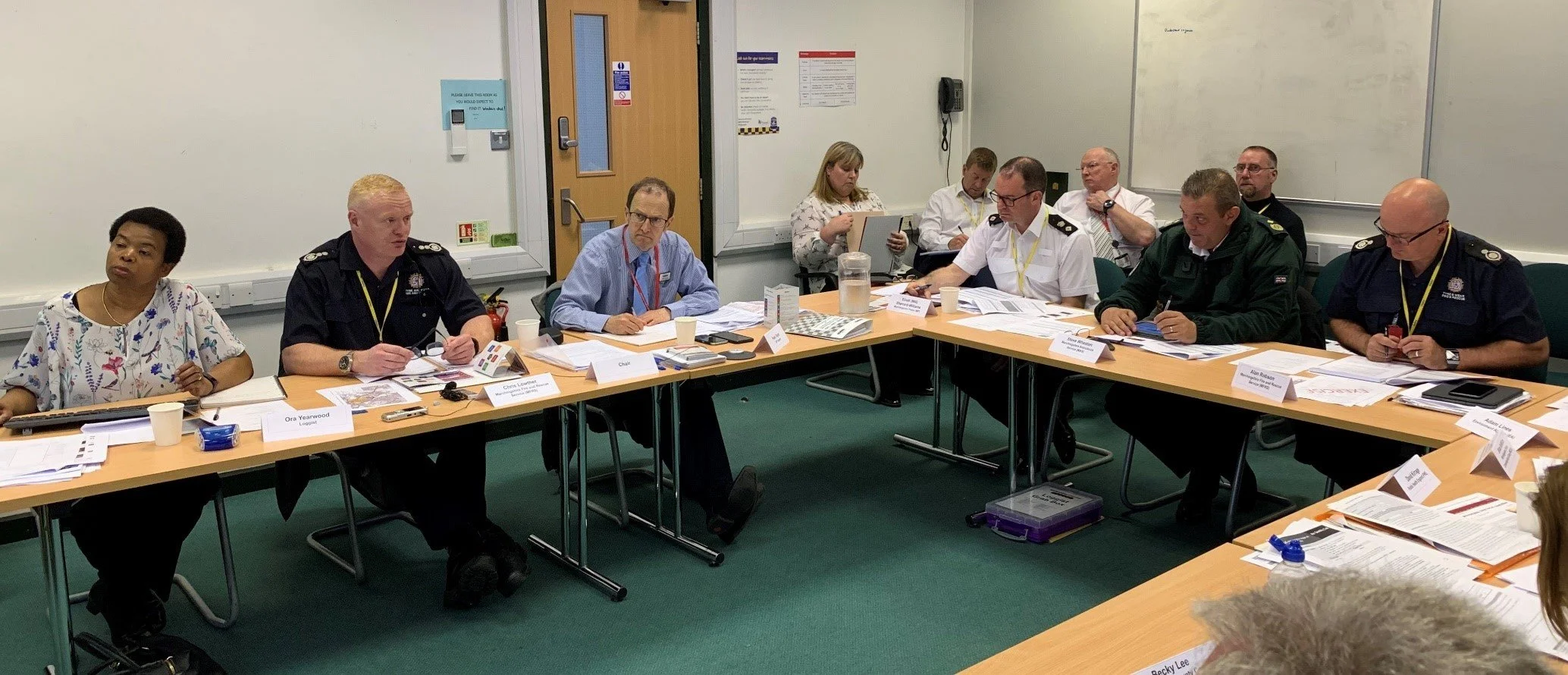SFJ Level 7 Award - Strategic Incident Command in Fire & Rescue Services (610/0189/2)
Course details and format
This course runs with 4 x delegates and can run with delegates from different Fire & Rescue Services.
This course consists of all delegates attending the following sessions -
1 x full day workshop
Each delegate is required to deliver a 45-minute presentation during the workshop
Each delegate also participates in 3 x 1:1 professional discussions around the content presented by their peers, to achieve the technical competencies required by the award
1 x half day coaching session in the role of the SCG chair – via a webinar/virtual training platform
1 x full-day practical scenario to assess all the demonstrate competencies required by the award. Each delegate will participate in 2 SCG exercises, 1 as the Fire Gold lead, the other as the SCG chair. The SCG scenario days involves 2 delegates, who rotate through these roles.
The Workshop and the Scenario days are spread throughout a 12-month period, although it would be possible to complete the award more quickly if desired.
KLA will provide -
Pre-course reading lists/journal articles and reading material as required
Support to the students whilst writing/researching presentation topics
Facilitation of the presentations and professional discussion
A strategic level Scenario – facilitated through Staffordshire’s CCU – who will provide all the authentic and credible role players, at the appropriate tier (a major challenge with this tier of exercise)
Electronic Portfolios
All administrative support and liaison with IQA/EQA for the course
SFJ registrations, IQA and EQA costs as per accredited centre requirements
Hosts Service to provide -
All training venues
Refreshments as required for the workshops
(One FRS is approached to host the workshop)
What our customers thought of this course
“I would like to thank Dr Katherine Lamb and K Lamb Associates for the services provided on the provision of the SFJ L7 Strategic Incident Command course. The professionalism, proficiency and quality-oriented training provision focused on Strategic Incident Command and decision making, was second to none.”
Ready to Book?
Don’t Forget:
We come to you!
If you don’t have enough delegates to fill a class, there are two options:
1) You host the event and we invite delegates from neighbouring FRSs to make up the numbers.
2) We arrange for another FRS to host the event and you send your delegates there. In this example, we can arrange hotel accommodation for your delegates and include this on your invoice.


